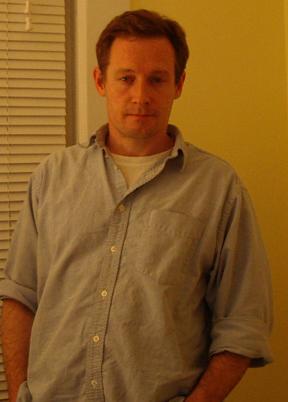
|
| Personal background |
|---|
Born in Central Victoria, Australia
Age: 36 and counting
Occupation: Contract Developer et al
Hobbies: finding out how things work, teaching myself new skills (brewing, carpentry, engineering), beer, running, more beer
Currently living in the Boston, MA, USA metro area, growing tomatoes, running town races, and drinking more beer |
| Thoughts about SETI and SETI@home |
|---|
Can't say whether E.T. life exists. I do hope so though, because I'd hate for humans to be the only sentient life forms around, that would really be a shame.
We ought to advertise our presence - its worth the risk. When you think of it lots of exploration by humans has involved casualties and disasters for the folk on the receiving end of the discovery (conquest). There is obviously a risk involved with this, but I think we should take it. We can't expect that all other intelligent lifeforms would be as greedy and self-centered as humans in this regard. As it is, in the scale of things, we're headed for ultimate extinction in any case (nothing lasts forever basically, not even the human race or earth). Why not at least risk going out with some nobler purpose in mind?
I run SETI at home because I like to think that I'm doing something useful with my spare CPU cycles and potentially (hopefully) to help seive through the unknown. Humans, like cats, are a curious lot and I guess I'm just living up to that by helping out.
Suggestions: make a lightweight version of SETI which does nothing but churn through the data, no fancy graphics, no time wasting, just pure data churn (it could run as a background process, or Win-based service - always on, always churning). |
| Your feedback on this profile |
|---|
| Recommend this profile for User of the Day: |
I like this profile |
| Alert administrators to an offensive profile: |
I do not like this profile |
|
| Account data |
View |
| Team |
None |
|

